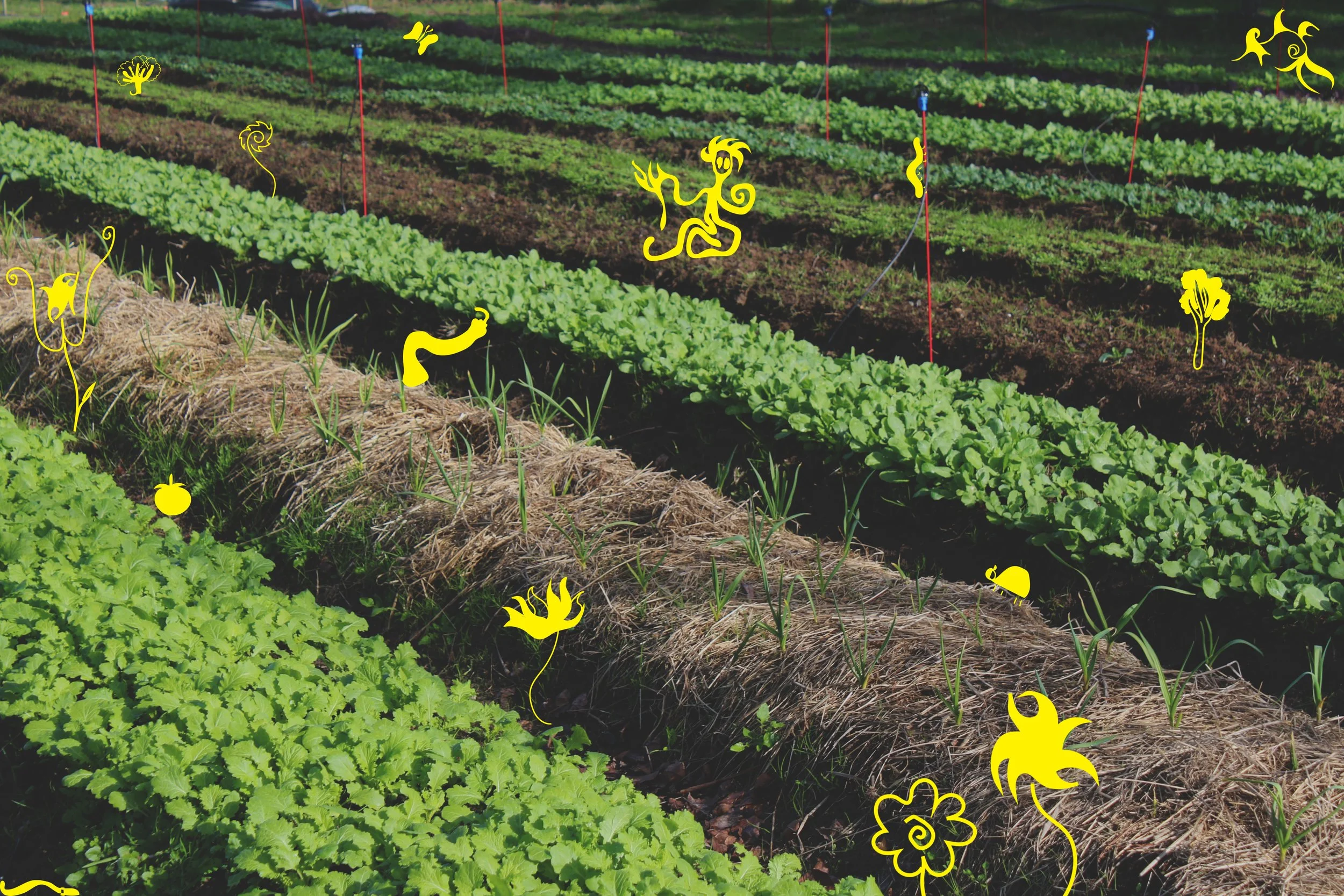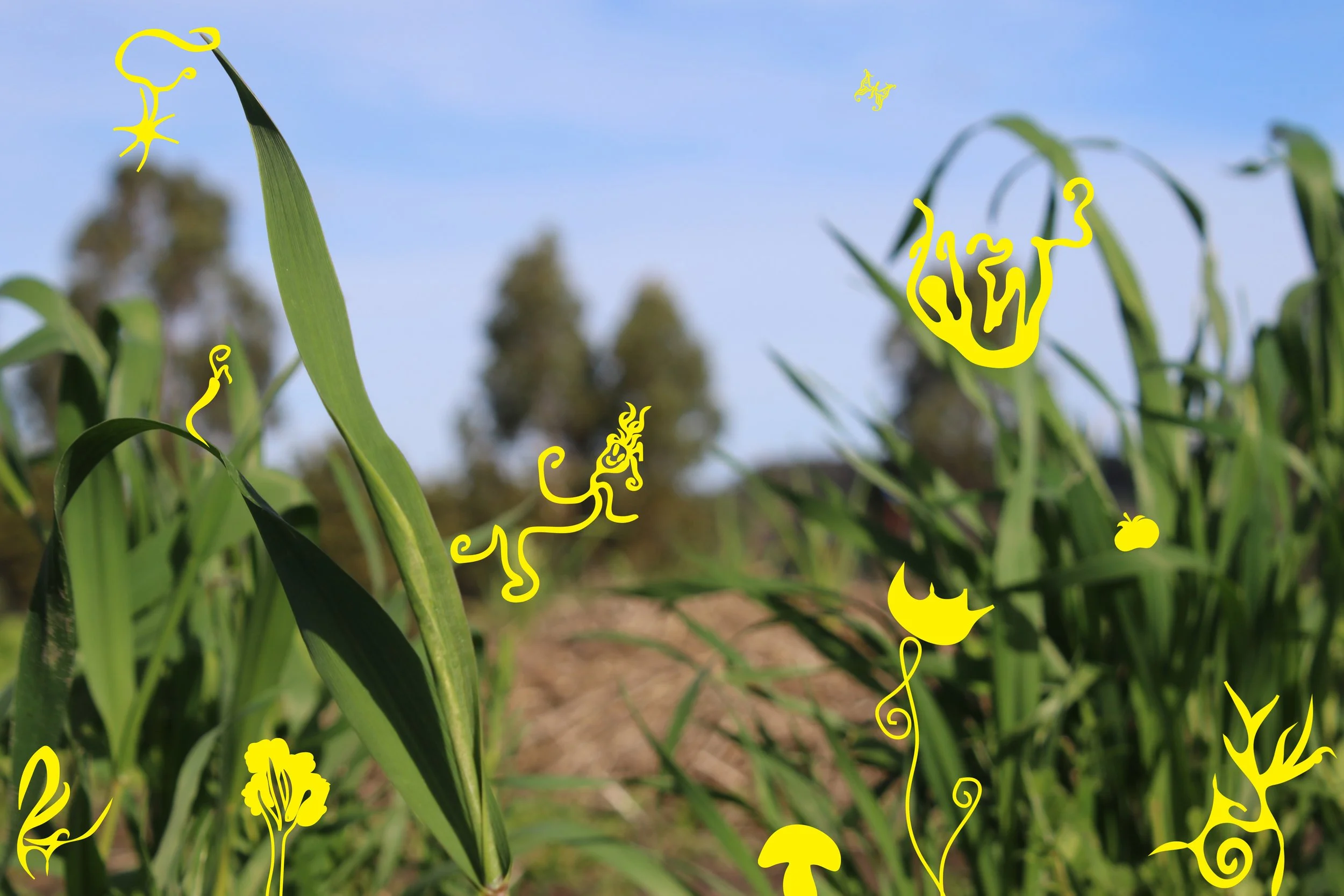small-scale regenerative farming - soli farm
regenerative practices - no chemicals - replenishing land & soil - local resilience
Farming in the Australian context, I was taught that bigger farms mean bigger returns. The truth is that the industrial agricultural system is not designed to support most farmers. Costs keep growing, the climate is less predictable, and consumers have forgotten the true value of real food. For decades, farmers have been told to “spray this to fix that” or “buy this fertiliser to solve that deficiency,” locking them into a cycle that benefits agribusiness at their expense. The people growing our food and, by extension, our health have been marginalised.
Small-scale market gardens caught my attention because it challenges the dependence on a flawed agricultural industry. It is where traditional agricultural wisdom intersects with modern tools and techniques to support ecological processes. Eliot Coleman, one of the pioneers of the organic market gardening movement, describes organic farming as “rooted in the creation and maintenance of biologically living, fertile soils.” And when the soil is fertile, plants do not need synthetic chemicals to prevent disease. They develop their own resistance through an active immune system, just like us. The fertility of soil does not have to rely on expensive, external inputs. It can be built through the perennial practices of composting, cover crops, rotations, livestock integration, and even cultivation. Coleman describes the management of soil fertility as “a circular process of endless renewal,” and I love that idea because it means with the right management, anyone can grow food that replenishes the land year after year.
Meanwhile, the consequences of an unsustainable food system become clearer, as more people question the industrialised food system and the harm it causes. Pesticides, GMOs, degraded soils, processed foods, and growing health risks will remain the legacy of this system. Compounding the problem, the supermarket duopoly has inflated food prices, leaving consumers with little choice. The food, often heavily processed or chemically treated, is stripped of much of its remaining nutritional value. The result is a less healthy and less wealthy population. Honestly, the big supermarkets can get f***ked.
In Australia, there is a lot we can learn from the small-scale regenerative farm movement happening around the world. It is already taking root here, and in Victoria, especially along the Surf Coast, we are lucky to have a strong community of ecological growers: Kinsfolk Farm, Common Ground Project, Farm My School, Bellagreen Organic Farm, Wildfields Farm, and more. Meeting these growers has been incredibly inspiring. They are generous, supportive, and deeply committed to strengthening our local food system. I am keen to give back to them as much as they have already given to me and our communities.
Local food systems offer so much hope. They offer real food grown in ways that actually sustain the land and community it’s grown in. If soli farm can help reconnect people to their food and to the processes that grow it, then it will have served its purpose. Like so many farms and farmers before me, we want to experiment as much as possible and explore intersections with industries, culture, and communities beyond just agriculture. I hope to create spaces that connect different people, communities, professions and backgrounds to what they are eating and the experience of how it is grown.
So excited.
Love,
soli farm




